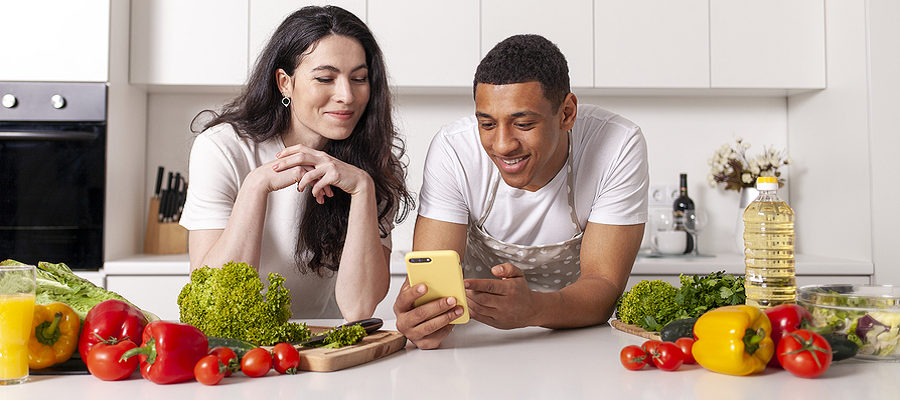
Collagen is a protein responsible for healthy joints and skin elasticity. It’s in your bones, muscles, and blood, comprising three-quarters of your skin and a third of the protein in your body. Think of collagen as a scaffold that provides strength and structure within the body. It is an essential component of connective tissue and plays a crucial role in holding the body’s cells together.
The body produces less collagen with age. Some other factors that can contribute to lower levels of collagen are too much sun exposure, smoking, hormonal changes, too much sugar in the diet and insufficient vitamin C. Collagen supplements are all the rage – medical professionals agree that more research needs to be done.
Everyone needs collagen. And everyone can eat foods that support collagen production in the body through a healthy diet. The body requires a combination of protein, vitamin C, zinc, copper, and other nutrients to make collagen.
To make collagen, your body puts together amino acids called glycine and proline. You find these acids in high-protein foods such as chicken, fish, beef, eggs, dairy, nuts, and beans. Bone broth is an excellent option. Vegetarians can opt for plant based proteins such as spinach, chia, soy, and tofu.
You can get vitamin C in fruits and vegetables such as berries, citrus fruits, kiwi, mango, papaya, pineapple, guava, broccoli, brussels sprouts, chives, coriander, garlic, leafy greens, peppers, and tomatoes.
For zinc: poultry, red meat, shellfish, nuts, whole grains, and beans.
Copper: beef, oysters, turkey, tofu, avocados, bananas, beans (black, chickpeas, pinto), strawberries, cantaloupe, figs, kiwi, mushrooms, nuts (cashews, peanuts), olives, potatoes, seaweed, seeds (sesame, sunflower), wheat bran cereal and whole grains.
Remember, your body can make its own collagen with the right food choices!
photo credit: bigstockphoto.com/BogdanPhoto




